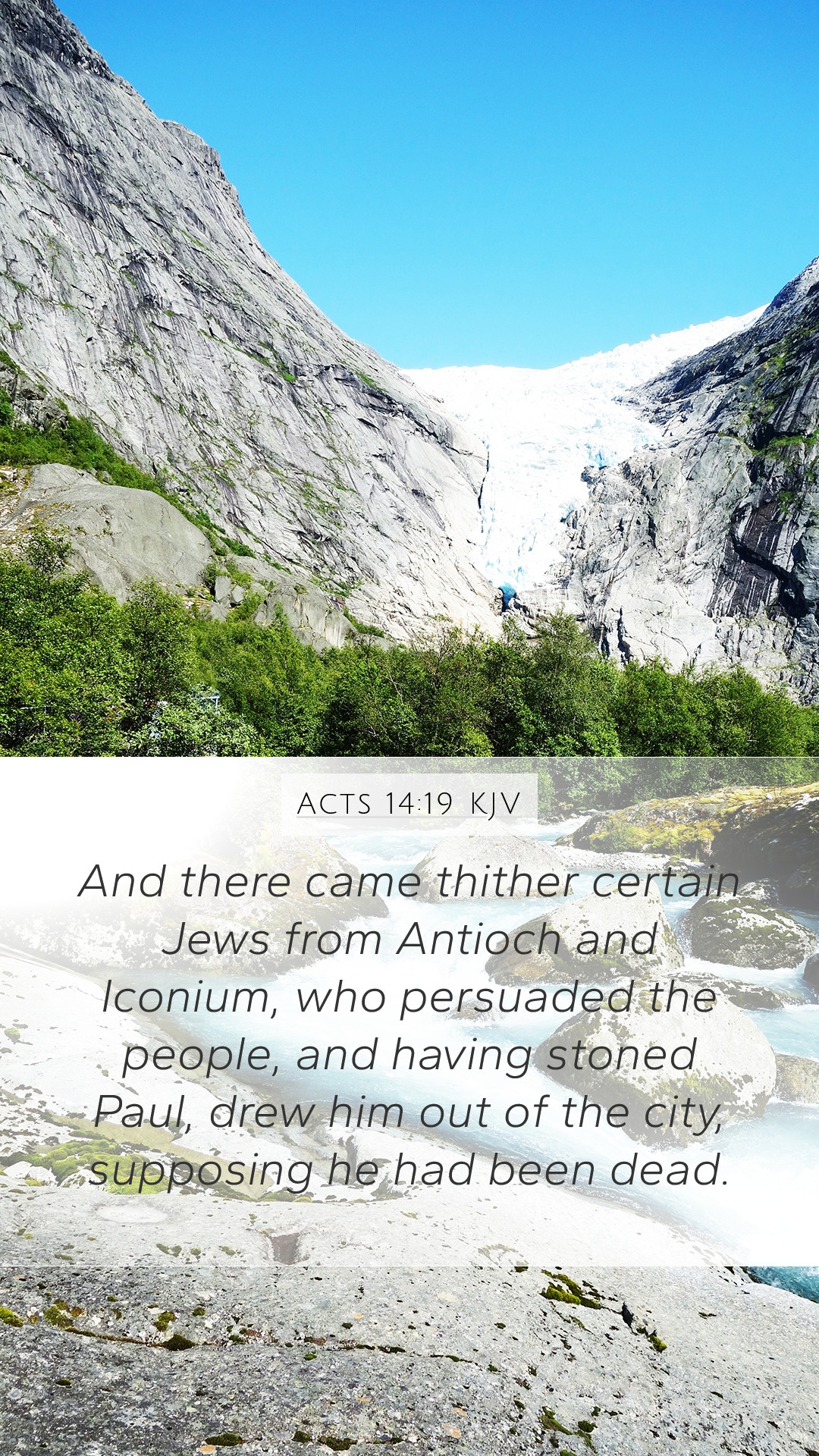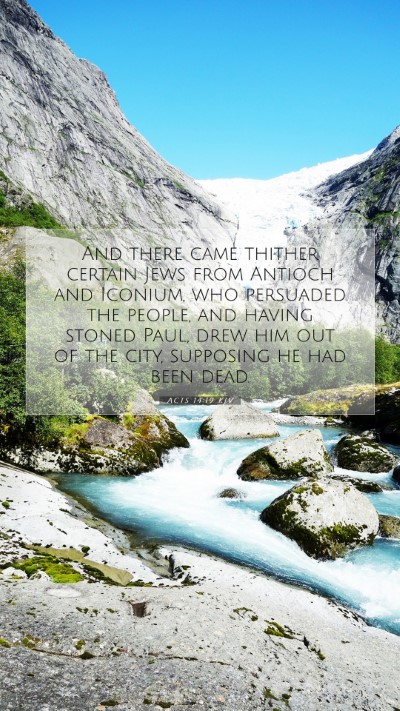Understanding Acts 14:19
Acts 14:19 presents a poignant moment in the life of the Apostle Paul, revealing the challenges and dangers inherent in his missionary work. This verse states:
“Then some Jews came from Antioch and Iconium and won the crowd over. They stoned Paul and dragged him outside the city, thinking he was dead.”
In this narrative, we observe the violent opposition Paul faced for preaching the gospel. The text serves as a critical intersection of faith, perseverance, and the harsh realities of early Christian ministry.
Contextual Insights
Acts 14 accounts for Paul’s missionary journey, particularly in Lystra, where he performed miracles and preached the gospel (Acts 14:8-10). The initial positive reception quickly turned to hostility as opposition arose from Jews who followed him from Antioch and Iconium.
Historical Context
Understanding the historical context of this verse is crucial for grasping its full meaning. Paul, along with Barnabas, faced a mixed response to their ministry, a reflection of the early church's struggles against a backdrop of paganism and Judaism that often rejected the gospel.
Commentary Insights
Matthew Henry notes that Paul’s stoning exemplifies the degree of animosity the gospel can provoke when it challenges existing religious and social orders.
According to Albert Barnes, the Jews’ ability to sway the crowd from admiration to violence highlights the precariousness of Paul’s position and the fickleness of public opinion during that time. He emphasizes that the brutality meted out to Paul elucidates the suffering that often accompanies apostolic authority.
Adam Clarke brings to light that this incident reflects the prophetic warnings Jesus gave to His disciples about persecution. Clarke emphasizes that Paul’s suffering should not deter believers but rather affirm their commitment to God’s mission.
Theological Reflections
The stoning of Paul serves to remind believers today about the realities of spiritual warfare and the cost of discipleship. Believers are often called to endure hardships for the sake of the Gospel (2 Timothy 3:12).
Application for Daily Life
Acts 14:19 challenges modern Christians to reflect on how they respond to opposition or suffering. It encourages faithfulness in the face of adversity and the importance of community support among believers, reminiscent of various biblical study topics concerning perseverance and faith under trial.
Key Takeaways
- Perseverance in Faith: Despite the danger, Paul continued his ministry, emblematic of unwavering faith.
- Understanding Opposition: Early Christians faced significant challenges, extracted from the cultural and religious resistance of their time.
- The Nature of Mission: Engaging in gospel ministry can lead to profound risks, reflecting the cost of discipleship.
Related Bible Cross References
- 2 Timothy 3:11-12: “...What persecutions I endured...” - Encourages understanding of the hardships faced by the faithful.
- Matthew 10:23: “When they persecute you in one town, flee to the next...” - Context of evangelism and perseverance.
- Acts 20:23-24: Paul reflects on his determination to fulfill his ministry despite expected hardships.
Conclusion
Acts 14:19 is more than a narrative about hardship; it encapsulates the essence of what it means to follow Christ amidst tribulations. For those seeking Bible verse meanings or engaging in Bible study insights, this verse serves as a powerful reminder of the resolve required for faithfulness in a challenging world.
Those studying this passage will find an invitation to deeper Bible verse interpretations and an exploration of persistent faith throughout Church history, providing a clear pathway for understanding Scripture in today's context.


